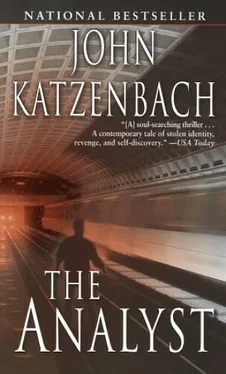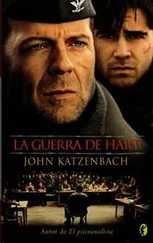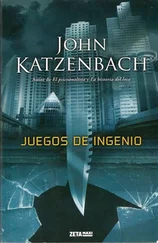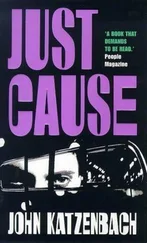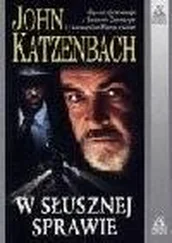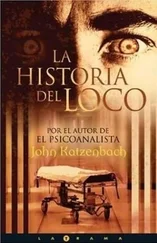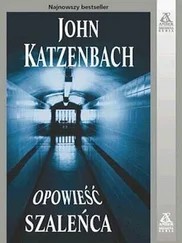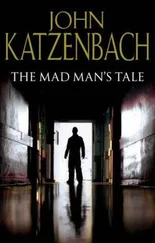Ricky did not hesitate to slip into the car and slam the door shut. He removed the pistol from his jacket and then started the car up. Within seconds he was pulling away, but he saw the breeder in his rearview mirror, the dog still at his side, watching him depart.
He was breathing heavily. It was as if the heat outdoors had overcome the car’s air-conditioning system, and as he bumped off the driveway up onto the black macadam road surface, he rolled down his window and took a gulp of the wind created by the car’s motion. It was hot to the taste.
He pulled over to the side of the road to regain his composure, and as he did, he saw the entrance to the cemetery. Ricky steadied his nerves and tried to assess what had happened at the breeder’s house. Clearly the mention of the three orphans had triggered a response. He guessed it was one from deep within, almost a subliminal message. The man had not thought about those three children in years, until Ricky arrived with a single question, and that had stirred up a response recalled from deep within him.
There had been something dangerous about the meeting that went far beyond the dog at the man’s side. Ricky thought it was almost as if the man had been waiting years for Ricky, or someone like Ricky, to show up with some questions, and once his initial surprise that the moment he’d been awaiting for years had finally arrived, he knew precisely what to do.
Ricky felt a little queasy in his stomach as this thought churned about.
Just inside the cemetery entrance there was a small, white clapboard building, tucked off a little ways away from the roadway that sliced between the rows of graves. Ricky suspected it was something slightly more than a storage shed, and he pulled in front of it. As he did, a gray-haired man, wearing a matching blue set of work clothes not all that dissimilar to what Ricky wore at the university maintenance department, came out from the building, taking a step or two toward a riding mower parked to the side, but stopping when he saw Ricky emerge from the rental car.
“Help you with something?” the man asked.
“I’m looking for a pair of graves,” Ricky said.
“Got lots of folks planted here, who in particular you looking for?”
“A couple named Jackson.”
The old man smiled. “Ain’t nobody been up to visit them in a long time. People probably think it’s bad luck. Me, I think anybody taking up residence here has experienced all the luck, good and bad, they’re ever gonna have, so I don’t care much. Jacksons’ graves in back, last row, way over to the right. Take the road to the end, get out and head that way. You’ll find it soon enough.”
“Did you know them?”
“Nope. What, you a relative?”
“No,” Ricky said. “I’m a detective. Interested in their adopted kids.”
“They didn’t have no family to speak of. Don’t know nothing about no adopted kids. That would have been in the papers back when they passed, but I don’t remember nothing about that, and the Jacksons, they were front page for a day or so.”
“How’d they die?”
The man looked a little surprised. “Figured you know, coming up to see the graves and all…”
“How?”
“Why, it was what the cops call a murder-suicide. The old man shot his wife after one of their fights, then turned the gun on hisself. Bodies stewed for a couple of days in the house before the mailman realized nobody’s picked up the mail, gets suspicious and calls the local cops. Apparently the dogs got at the bodies, as well, so there weren’t much left, except some mighty unpleasant remains. Lot of anger in that house, you’d best believe.”
“The guy that bought it…”
“I don’t know him, but they say he’s a piece of work. Just as nasty as the dogs. Took over the breeding business, too, that the Jacksons had going there, but at least he killed all the animals that had eaten the former owners. But I’m thinking he’s likely to end up that way, hisself. Maybe that’s what wears on his mind. Makes him the nasty folk he is.”
The old man gave a grisly laugh and pointed up the incline. “Up there,” he said. “Actually, a pretty nice spot to rest for eternity.”
Ricky thought for a moment, then asked, “You wouldn’t know who bought the plot, do you? And who pays for maintenance?”
The man shrugged. “Checks just come in, I don’t know.”
Ricky found the grave site without any difficulty. He stood for a second amid the silence of the bright midday sun wondering for a moment whether anyone had given thought to a headstone for him after his suicide. He doubted it. He’d been as isolated as the Jacksons. He wondered, as well, why he’d never put up some sort of memorial to his dead wife. He had helped establish a book fund in her name at her law school, and he’d annually made a contribution to the Nature Conservancy in her name, and he’d told himself that these acts were better than some cold piece of stone standing sentinel over a narrow slice of earth. But standing there, he was less certain. He found himself caught in a reverie of death, thinking about the permanence and the impact on those left behind. He thought, we learn more about the living when someone dies, than we do the person who passed away.
He was uncertain how long he remained there, in front of the graves, before finally examining them. It was a joint headstone, and it merely said the names, the dates of their birth, and the date of their death.
Something bothered him, and he stared at this small bit of information, trying to discern what it was. It took several seconds before he made a connection.
The date of the murder-suicide was the same month that the adoption papers were signed.
Ricky took a step back. And then he saw something else.
The Jacksons were both born in the 1920s. They would have both been in their mid-sixties when they died.
He felt hot again, and he loosened the tie around his neck. The fake stomach seemed to pull at him, weighing him down, and the fake contusion and scar suddenly began to itch on his face.
No one can adopt a child, much less three children, at that age, he thought. The guidelines for adoption agencies would rule out a childless couple that age almost immediately, in favor of a younger, far more vigorous couple.
Ricky stood by the graves thinking he was looking at a lie. Not a lie about their death. That was true enough. But a lie somewhere in their life.
Everything is wrong, he thought. Everything is different from what it should be. Ricky was almost overcome with the sense that he was treading on the edge of something larger than what he’d expected. Revenge that was boundless.
He told himself that what he needed to do was to get back to the safety of New Hampshire and sort his way through what he’d learned, make some sort of rational, intelligent next step. He halted the rental car outside the office of the Econo Lodge, and stepped inside, spotting a different clerk. Omar had been replaced by James, who wore a clip-on tie that still managed to be skewed around his neck.
“I’m going to check out,” Ricky said. “Mr. Lazarus. In room 232.”
The clerk pulled up a bill on the computer screen, and said, “You’re all set. Except there were a couple of phone messages for you.”
Ricky hesitated, then asked, “Phone messages?”
James the clerk nodded. “Guy from some dog kennel called, asking if you were staying here. Wanted to leave a message on your room phone. Then, just before you came in, there was another message.”
“Same guy?”
“I don’t know. I just push the buttons. Never talked to the person. It just sticks a number up here on my call sheet. Room 232. Two messages. You want, just pick up the phone over there and punch in your room number. You can hear the messages that way.”
Читать дальше
